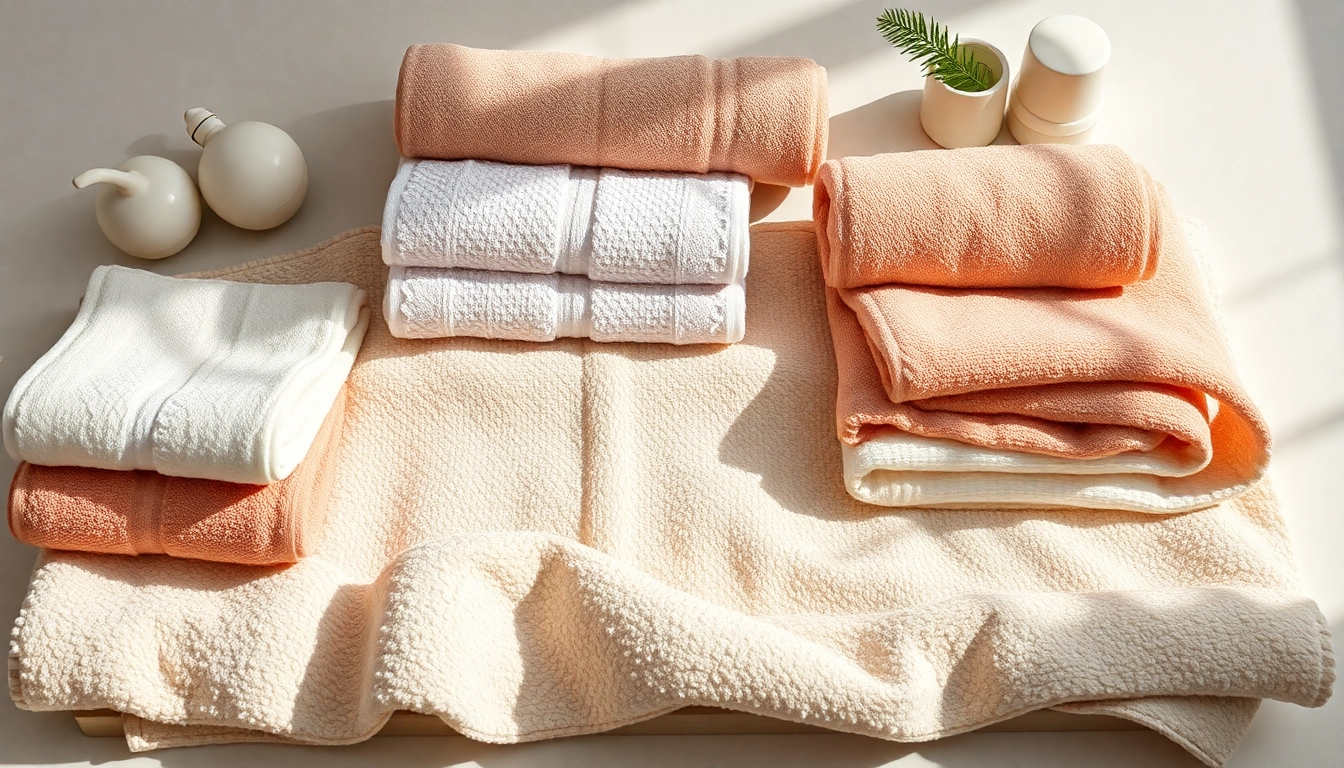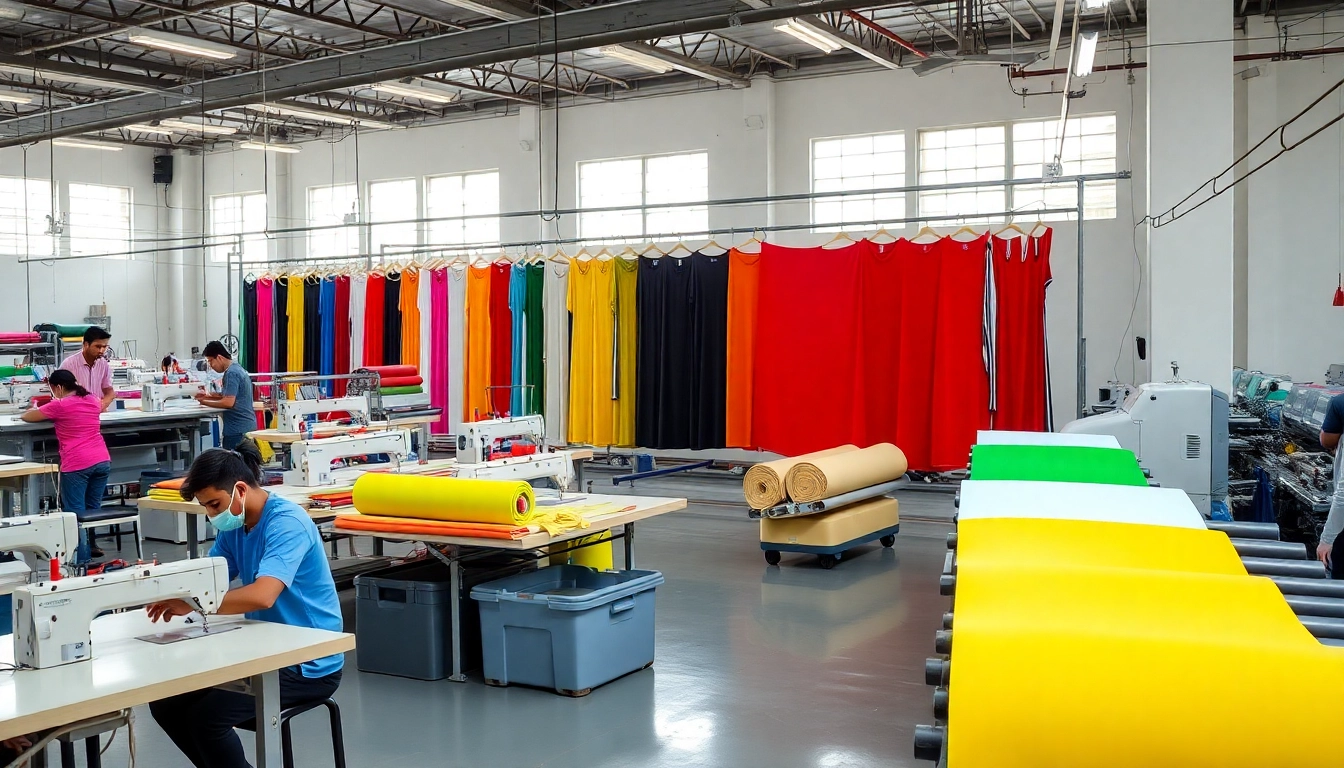Understanding the Towels Wholesale Market
The global towels wholesale market has experienced consistent growth driven by rising demands from hospitality sectors, retail outlets, spas, gyms, and institutional buyers. This surge is supported by increasing consumer awareness of quality and hygiene standards, as well as the booming hospitality industry worldwide. Particularly in countries like Pakistan, the country renowned for its extensive textile manufacturing capabilities, the market has become a significant hub for high-quality towel production that caters to both domestic and international markets.
Market trends indicate a noticeable shift toward eco-friendly and organic towels, aligning with global sustainability initiatives. Consumers and businesses alike are seeking products made from natural fibers that offer superior softness, absorbency, and durability. It’s vital for wholesalers to stay ahead of these trends by sourcing innovative products that meet evolving consumer preferences.
Additionally, the rise of online B2B platforms has streamlined sourcing processes, making wholesale purchasing more accessible and transparent. For buyers seeking reliable sources, understanding key sourcing countries like Pakistan, India, China, and Turkey is essential, as these nations lead in manufacturing excellence and cost competitiveness. If you’re interested in exploring opportunities or expanding your inventory, learn more about Towels Wholesale options to find premium products suited for various business needs.
Choosing the Right Towel for Wholesale
Types of Towels Available in Bulk
Wholesale towels come in a variety of types designed to meet the specific needs of different sectors. The most common categories include bath towels, beach towels, hand towels, face towels, and specialty towels such as spa or hotel towels. Each type varies in size, fabric quality, and purpose.
For instance, bath towels, typically measuring 27×54 inches, are the staple in both hotel and retail markets. Beach towels often feature larger sizes and vibrant designs, appealing to the leisure segment. Hand towels, smaller and more compact, are popular in kitchens and bathrooms. Understanding these variations is crucial for selecting the right product line for your target market.
Material Options: Cotton, Bamboo, and Blends
The material composition significantly affects the quality, durability, and eco-friendliness of towels. Cotton, especially Egyptian and Turkish varieties, remains the gold standard for softness and absorbency. Organic cotton offers a sustainable alternative for environmentally conscious buyers.
Bamboo fibers are gaining popularity due to their antibacterial properties and silky touch, making them suitable for luxury or spa towels. Blended fabrics, combining cotton with polyester or modal, offer durability and cost-effectiveness for bulk purchasers. Wholesalers should evaluate fiber quality, fiber length, and finishing techniques when sourcing fabrics.
Optimal Sizes, Weights, and Quality Standards
Size selection depends on the intended application—larger sizes for hotel and spa use, standard sizes for retail, and smaller options for personal care. Weight also influences towel performance; lighter towels (around 400-600 GSM) are quick-drying and suitable for travel, whereas heavier towels (>700 GSM) are plush and ideal for luxury settings.
Quality standards to consider include colorfastness, fabric strength, and resistance to shrinking or pilling. Certifications such as OEKO-TEX® Standard 100 indicate fabric safety and compliance with international health and environmental regulations, giving buyers confidence in their purchases.
How to Select a Reliable Towels Wholesale Supplier
Key Criteria for Evaluating Suppliers
- Product Quality: Verify fabric standards, manufacturing processes, and quality controls.
- Production Capacity and Lead Times: Ensure suppliers can meet your volume demands within your timeline.
- Pricing and Payment Terms: Seek transparent pricing structures and favorable payment options.
- Certifications and Compliance: Confirm adherence to international safety standards like OEKO-TEX®, ISO, and environmental regulations.
- Customer Service and Support: Evaluate responsiveness, customization capabilities, and after-sales support.
Questions to Ask Before Partnering
Always inquire about minimum order quantities, sample availability, shipping methods, export experience, and whether they provide customization options such as logo embroidery or packaging design. Clarify lead times for order fulfillment and sample delivery, which are critical for planning your inventory cycle.
Shipping, Lead Times, and Customization Services
Leading suppliers often offer flexible shipping options including FOB, CIF, and DDP terms, along with express or bulk freight services. Customization such as specific color shades, branding, and packaging can be a competitive advantage, helping you differentiate your offerings in the marketplace. Reliable suppliers should provide clear timelines for customization and delivery, ensuring your business maintains consistent stock levels.
Integrating Towels Wholesale into Your Business
Best Practices for Inventory Management
Adopting effective inventory strategies involves analyzing sales trends, maintaining safety stocks, and forecasting seasonal demand. Using real-time inventory data and flexible warehousing can optimize stock levels, reduce holding costs, and prevent stockouts. Batch purchasing at wholesale rates can provide cost savings, but requires careful planning to prevent overstocking of items with slow turnover.
Pricing Strategies and Market Positioning
Competitive pricing is vital for capturing market share. Position your brand either as a value-oriented supplier or a premium provider based on product quality. Offering tiered pricing for bulk orders, exclusive deals, or loyalty discounts can incentivize larger purchases. Clearly communicate your value proposition and maintain price consistency to sustain customer trust.
Effective Marketing and B2B Outreach
Utilize digital marketing channels such as B2B platforms, industry expos, and targeted email campaigns to reach hotel chains, spa owners, retailers, and institutional buyers. Showcase product certifications, testimonials, and sample offers to build credibility. Establishing long-term relationships through personalized service can lead to steady orders and referrals.
Performance Metrics & Future Trends in Towels Wholesale
Tracking Sales and Customer Satisfaction
Implementing comprehensive monitoring tools allows you to evaluate sales volume, profit margins, and customer feedback. Regular assessment helps identify popular products, high-performing suppliers, and areas for improvement. Customer satisfaction surveys and repeat order rates are valuable indicators of your service quality.
Emerging Trends: Eco-Friendly and Organic Towels
The demand for sustainable textiles is shaping the future of the towels wholesale market. Consumers increasingly prefer organic, biodegradable, and organically certified products. Wholesalers can capitalize on this trend by sourcing eco-friendly options, promoting their environmental benefits, and aligning with green certifications to attract eco-conscious buyers.
Innovations and Technology in Towel Manufacturing
Advancements such as antimicrobial finishes, innovative weaving techniques, and smart textile technologies are enhancing towel performance. Digital printing, eco-friendly dyeing processes, and improved fabric treatments optimize both aesthetics and durability. Keeping abreast of these innovations can help wholesalers offer cutting-edge products and differentiate in a competitive landscape.


